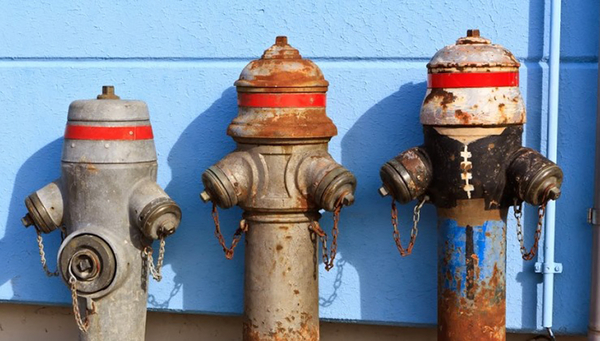News Detail
Sustainable development of urban sewage systems
April 8, 2022 |
The sewage system in Switzerland is very effective, one of the best in the world, but it is also highly costly and resource-intense. A 130,000-kilometre underground sewer system disposes of human waste in Switzerland. Large amounts of water, usually drinking water, are needed every year, about 1.4 billion cubic metres, to flush the urine and faeces to remote wastewater treatment plants. Only a few wealthy countries can afford such a system. It is also becoming more and more challenging for Switzerland to preserve such a system due to outdated infrastructures, population growth, climate change and micropollutants placing increasing pressure on the sewer system and wastewater treatment plants, especially in the cities. Since resources are also becoming increasingly scarce worldwide, there is even more interest in recovering valuable resources from wastewater.
Contributing to the UN’s Sustainable Development Goal 6
The inter- and transdisciplinary Wings Research Programme of the Aquatic Research Institute Eawag, has therefore set itself the objective, among other things, of developing sustainable urban sewage systems to contribute to the United Nations’ Sustainable Development Goal 6: clean water and sanitation for all. Sabine Hoffmann who is leading the programme, explains: “The programme researches alternative, decentralised sewage systems that do not require extensive sewer systems, consume less water, purify the water directly on site and recover valuable raw materials such as water, nutrients and energy from the wastewater.”
Centralised, decentralised, hybrid sewage systems
Conventional sewage systems with bigger sewer networks and just a few, large wastewater treatment plants are classified as centralised systems. In contrast, alternative sewage networks that treat, purify and recycle wastewater on site, are referred to as decentralised, non-grid sewage systems. Combining centralised with decentralised options creates a hybrid system. This is a particularly good solution for countries like Switzerland that already have a widely established centralized wastewater infrastructure. This makes it possible to integrate innovative technologies into the conventional systems. In countries that are just starting to build sewage systems, decentralised is often the preferred option as it is more flexible, cost-effective and resource-saving.
Many alternative technologies are currently under development in Switzerland. In Geneva, housing cooperatives separate and treat urine from household wastewater on site. The Swiss company Laufen has been marketing a toilet for separate recovery of nutrients from urine since 2019. Eawag and Empa are developing and testing decentralised wastewater treatment in the NEST building, and the cities of Bern and Freiburg are leading the way in the development of neighbourhoods with decentralised wastewater treatment. Together with partners from France and Germany, the composting toilet manufacturer Kompotoi from Zurich wants to herald a sanitation turnaround and close resource cycles by using nutrients from the faeces and urine of public composting toilets as fertiliser in agriculture.
Combining low-tech with high-tech
As a study by Eawag researchers Jonas Heiberg and Bernhard Truffer revealed, the approaches vary greatly. While some actors prefer low-tech solutions, others rely on high-tech. This can result in self-contained innovation scenarios that may even work contrary to one another. This is where the Wings Research Programme comes in. “It is only when research, politics, authorities, urban planning and engineering and architectural firms work together that sustainable and practicable solutions can be developed for different cities and requirements and effectively implemented,” explains Sabine Hoffmann.
In order to develop these kinds of solutions and implement them in practice, Wings works in an interdisciplinary team of engineers and social scientists from Eawag’s departments of Process Engineering, Urban Water Management, Environmental Social Sciences, and Sanitation, Water and Solid Waste for Development. The programme builds on existing inter- and transdisciplinary projects, some of which work together with actors from policy, practice and industry. It bundles these research projects under one roof and uses synergies to support processes of change for sustainable urban water management in developed, emerging economies and developing countries. “Our objective is to learn from past and current experiences in developing and implementing concrete solutions, allowing us to initiate and support processes of change,” says Sabine Hoffmann.
Paradigm shift from a linear to a circular way of thinking and acting
Wings also highlights areas where adjustments are needed to make sewage systems fit for the future. For example, changes are not just needed in infrastructures, markets and the alignment of technical and social innovations, socio-technical solutions must also be tested first on a small scale, e.g. in living labs, pilot projects or experimental rooms. This requires suitable framework conditions with room for failure. All the relevant actors must of course be systematically and fully involved in these processes of change. And ultimately there needs to be a paradigm shift "from a linear to a circular way of thinking and acting" that should be appropriately conveyed in schools, colleges, universities and centres for vocational training and continuing education.
Cover picture: Max Maurer, Eawag
Original publications
Kristof K (2021) Erfolgsfaktoren für die gesellschaftliche Transformation: Erkenntnisse der Transformationsforschung für erfolgreichen Wandel nutzen. GAIA - Ecological Perspectives for Science and Society 30 (1):7-11. doi:10.14512/gaia.30.1.3

